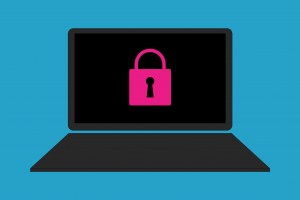Being careful with your password is very important.

Believe it or not, 2nd May 2019 is “World Password Day”; an entire day devoted to underlining the importance of those pesky little strings of letters, numbers and (usually) special characters.
Passwords can seem daunting and we often forget them, but they play a crucial role in keeping our accounts and the resulting data safe. As luck would have it, we’ve assembled a checklist of dos and don’ts which will enable you to be as password savvy as possible:
What not to do:
- Don’t write down your password (especially near your computer)
- Don’t keep it or your bank PIN in your wallet or purse
- Don’t store it on your computer
- Avoid using the ‘remember password’ feature on your computer
(especially if it is a shared computer)
What makes a BAD password:
These tend to be things that anyone who knows you could easily guess, or really basic passwords that people will try:
- A birthday/anniversary/name of pet/name of child etc.
- Something you like that people could easily work out eg. SAFC1973
- 123456 or any series of characters that go in sequence
- A single word – add numbers, symbols and upper/lower case characters
What makes a GOOD password:
Ok so we’ve sent you into a panic about having a bad password, “what do I do now?” I hear you cry. Here are some simple tips for creating a strong and memorable password:
- At least 8 characters long
- A mix of numbers and letters
- Add in some special characters eg $ or @
- A mixture of upper case and lower case
A good combination might be to try combining three random words in upper and lower case, with symbols that look like letters replacing them. For example “media savvy password” would become “M3d1@ s@VVy pa55w0rD”.
Now for those of you out there thinking that’s all a bit much to remember, try choosing someone’s name from your past that no one would remember and add a number.
Maybe the name of:
- Your priest when you were a child
- Your Aunty’s dog
- Your primary school teacher
- The street your grandmother lived on when you were a child
